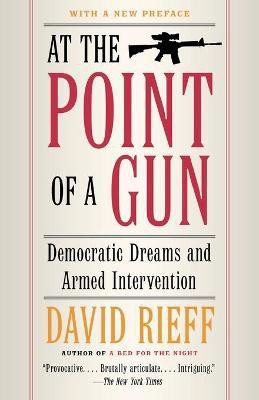At the Point Of a Gun: Democratic Dreams and Armed Intervention(English, Paperback, Rieff David)
Quick Overview
Product Price Comparison
Writing from the front lines of the hot wars of the post-Cold War world -- the Balkans, Africa, the Middle East, and most recently Afghanistan and Iraq for The New York Times Magazine -- David Rieff witnessed firsthand most of the armed interventions waged by the West or the United Nations in the name of human rights and democratization. His report is anything but reassuring. In this timely collection of his most illuminating articles, Rieff, one of our leading experts on the subject, reassesses some of his own judgments about the use of military might to solve the world's most pressing humanitarian problems and curb the world's cruelest human rights abusers, presenting what, taken as a whole, is a thoughtful and impassioned argument against armed intervention in all but the most extreme cases. At the Point of a Gun raises critical questions we cannot ignore in this era of gunboat democracy. When, if ever, is it appropriate to intervene militarily in the domestic affairs of other nations?Are human rights and humanitarian concerns legitimate reasons for intervening, or is the assault on sovereignty -- sovereignty that is as much an article of faith at the UN as it is in Washington -- a flag of convenience for the recolonization of part of the world? What role should the United Nations play in alleviating humanitarian crises? And, above all, can democracy be imposed through the barrel of an M16? Collected here for the first time, Rieff's essays draw a searing portrait of what happens when the grandiose schemes of policymakers and the grandiose ethical ambitions of human rights activists go horribly wrong in the field. Again and again, they ask the question: Do these moral ambitions of ours to protect people from massacre and want match either our means or our wisdom? Rieff's articles appear as they were written. Some, however, are accompanied by brief reconsiderations in which the author describes how and why his thinking has changed both as he has reflected on what it means, as in Iraq, to impose democracy by force, and as he has witnessed, firsthand, what that redemptive project actually looks like in practice. This is not an optimistic report.To the contrary, it is the chastened conclusion of a writer who was once one of the leading advocates of such interventions. But the questions Rieff raises are of the essence as the United States grapples with the harsh consequences of what it has wrought on the ground in Afghanistan and Iraq.


